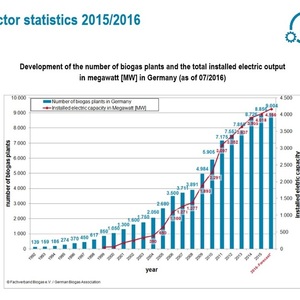German biogas industry adds 150 plants in 2015




August 18, 2016
BY Anna Simet
Advertisement
Advertisement
Related Stories
The U.S. DOE has opened a funding opportunity making up to $25 million available to support clean energy technology deployment on Tribal lands. Projects fueled by biomass, biogas, RNG or renewable hydrogen are among those eligible for the funding.
Solarig on April 3 announced plans to develop a commercial scale biorefinery in Spain that will produce sustainable aviation fuel (SAF) from renewable natural gas (RNG) and renewable electricity.
Air Liquide has announced the construction of two new RNG production units in the U.S. These units, located in Center Township, Pennsylvania, and Holland Township, Michigan, will treat waste sourced from dairy farms.
The International Biomass Conference & Expo was held in Richmond, Virginia, in early March.
FuelCell Energy Inc., announced that its carbonate fuel cell technology will be used in a biogeneration project developed by Ameresco for the Sacramento Area Sewer District (Sacramento Sewer) to convert on-site biofuel into clean electricity.





